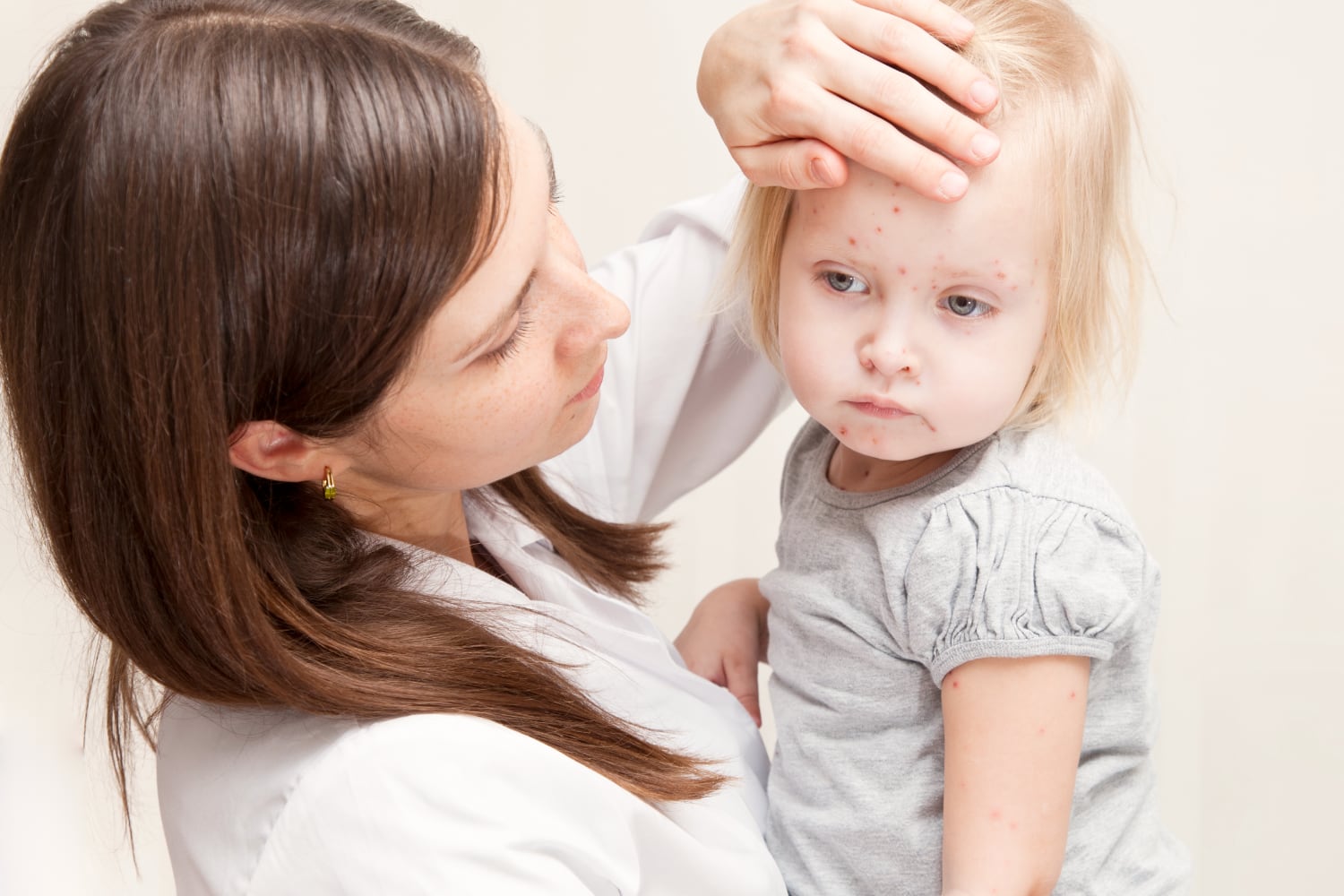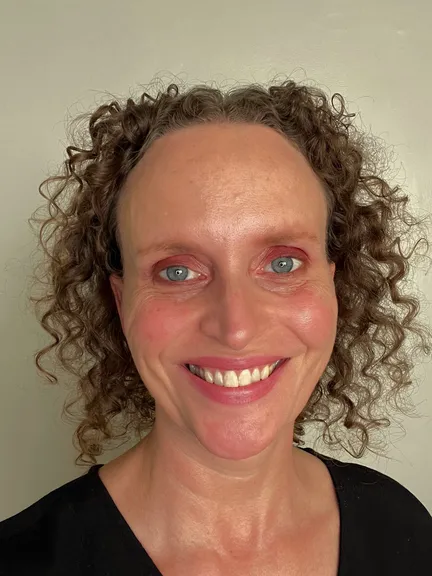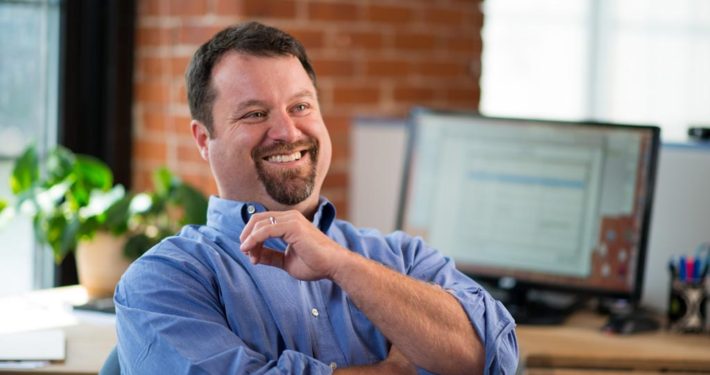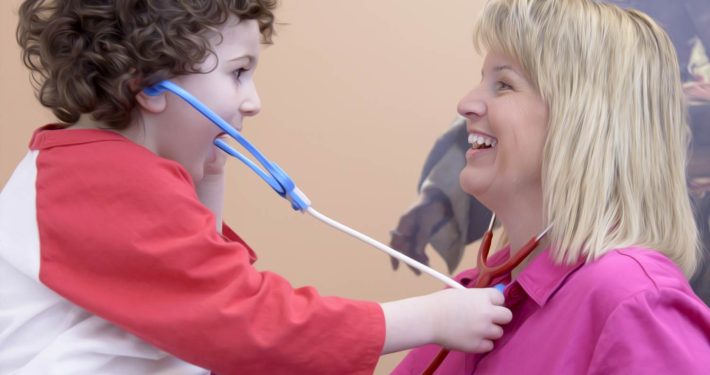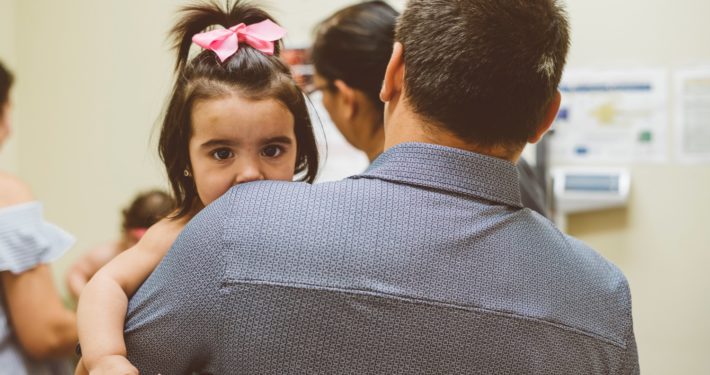Patient Relationships in Challenging Times
“What I love about primary care is building relationships,” says Dr. Youngblood. “I’m now reaching a point in my career where I’m taking care of kids whose parents I saw as teenagers, which is just so cool.”
In a healthcare environment that’s increasingly fragmented and digital, where many Americans do not have a primary care provider, it is a rare gift to engage in years or decades-long relationships with families. “The relationships are what sustains you when things are hard,” she continues. “Look, none of us got into pediatrics for the money. I really think it’s those family relationships and being able to help people in a way that feels super tangible. There’s nothing glamorous about general pediatrics—the relationships are what gives it the most meaning.”
Because she has developed such close relationships with her patients, Dr. Youngblood is thinking about their long term wellbeing. She views her relationships to her patients through the lens of advocacy, which is why she has her eye on government programs and funding right now, in particular the March 2025 proposed cuts to Medicaid.
“I’m super worried right now about funding to ensure we have equitable access to care,” she explains. “This is a political statement these days, I understand that, but it’s also not a political statement: everyone should have access to healthcare. Whatever your politics, people need healthcare.”
While Dr. Youngblood believes all families should have access to care regardless of income, she is also a strong advocate for balanced and fair compensation for pediatricians. “I don’t think the answer is that pediatricians should work for free if they take care of a certain population,” she says. “To have a healthy society everyone needs to be taken care of, including the healthcare providers.”
Dr. Youngblood wishes those making decisions in Washington D.C. could see the impact of their policies on the ground. “Part of me wants to say, ‘Okay, I need you, government official, to come to my clinic and watch me turn this person away!” she says. “I need you to be part of that aspect of this process.’” As she observes changes unfolding in government, Dr. Youngblood expresses the feeling that “we’re nearing a crisis point.”
“As a community in Birmingham, if Medicaid gets gutted, if CHIP gets gutted, we need a plan to keep taking care of people and keep our practices financially sustainable,” she says.
At Dr. Youngblood’s practices, approximately 25% of patients are on Medicaid. “We can’t just start seeing 25% of our patients for free,” she says with a sigh. “Maybe things will eventually get fixed, but if funding is suddenly stripped, what do we do tomorrow? Where will these families go for a year or two while our leaders figure it out?”
Dr. Youngblood also speaks to what she perceives as a cognitive dissonance amongst some of her patients. “It’s very interesting to live in an area where people actively promote worldviews that will, if enacted, directly harm them,” she says. “It’s so frustrating to hear people saying they don’t want ‘illegals’ to have Medicaid, but to know they’re here today because they themselves have Medicaid. Sometimes I’m shocked at what even well-educated people do or do not understand.”
Still, Dr. Youngblood is looking ahead for creative solutions. “I’ve been wondering if there’s a way to do a volunteer clinic with a group of local pediatricians, perhaps with a philanthropic sponsor,” she says. “I know our community is strong and we can come together to take care of each other. This is going to have to be a very local effort.”


